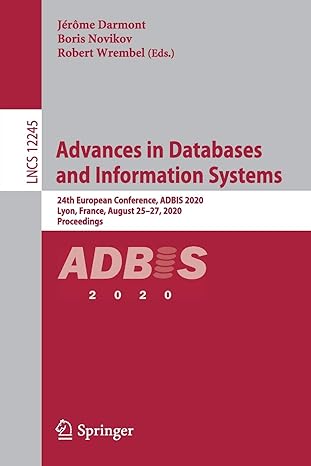Question
An integer overflow is the condition that occurs when the result of an arithmetic operation, such as multiplication or addition, exceeds the maximum size of
An integer overflow is the condition that occurs when the result of an arithmetic operation, such as multiplication or addition, exceeds the maximum size of the integer type used to store it. If the integer in question is incremented past the maximum possible value, it may wrap to become a very small, or negative number, therefore providing a very incorrect value. It is often a critical security flaw in software.
For example, in a 16-bit integer system, 19458*37=64586. The result is supposed to be 719946, but has more than 16 bits. Therefore, the result is wrapped, i.e. only the least significant 16 bits of the result remain.
Consider in a 32-bit integer system,
(1) Let Z = 0xFEDCBA98. What is the result of Z + 0x10000000 ? Note that the result must be a 32-bit integer, because this is a 32-bit integer system. (2) Let Y = 0xFEDCBA98. What is the result of Y * 0x10 ? Note that the result must be a 32-bit integer, because this is a 32-bit integer system. (3) Find "X" that satisfies the following equations.
Please show work
Step by Step Solution
There are 3 Steps involved in it
Step: 1

Get Instant Access to Expert-Tailored Solutions
See step-by-step solutions with expert insights and AI powered tools for academic success
Step: 2

Step: 3

Ace Your Homework with AI
Get the answers you need in no time with our AI-driven, step-by-step assistance
Get Started


